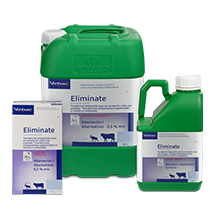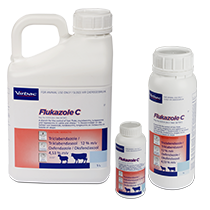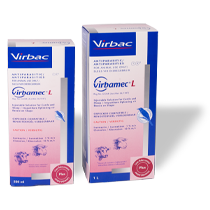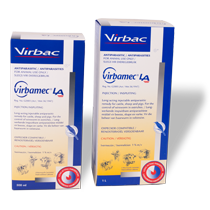
Deworming of cattle - why?
It is economically important to deworm adult cattle at strategic times to improve production and reproduction. The best times would be early summer (Oct-Nov) & before winter season (April/May). Deworming at these strategic times will help to:
- Reduce the internal parasite challenge on the veld
- Reduce the risk of the negative impact of internal parasites on cattle
Of the 3 internal parasite groups (Roundworms, Tapeworms, Fluke worms), 2 are of major importance in adult cattle:
1. Roundworms and they cause:
- Depressed weight gains
- Poor feed efficiency
- Reduced milk production and reproductive inefficiency in cows
Although adult cattle may develop resistance against roundworm species, these parasites may have an influence on production, especially when animals are subjected to stress. Stress can include the transition period (just before and after calving), as well as nutritional (low quality /quantity feed) and environmental (drought and extreme weather) related stress.
2. Liver fluke on the other hand causes liver damage to such an extent, that it:
- Deprives the animal of energy and protein (loss of condition, fertility, and growth)
- Limits the storage ability of trace minerals, which makes supplementation with trace minerals ineffective and leads to suboptimal trace-mineral levels (impaired immunity, reproduction, and production)
- Leads to a vitamin-A shortage, even on green pastures.
Although cattle produce “antibodies” that are detectable via an ELISA test, cattle do not develop protective immunity against liver fluke.
Proof of why deworming Cattle is of importance:
- In South Africa, dr. HJ. Meaker (1994) has done some groundbreaking work to show the effect of deworming on reproduction in beef cattle. The trials done showed the conception rates of animals dewormed x1 (June only) and animals dewormed x2 (June & November). The group that received two treatments had an increase in conception rates of 17,9 % in 1st calving heifers vs the control and a 14,3 % increase in 2nd calving cows vs the control group. In addition, the calves of the group who were dewormed x2, weaned 4.4kg heavier, although they themselves were not dewormed. This is an indication of better milk production in the cows that were dewormed.
- In a trial in the Grootfontein area of Namibia, Dr MJ Ferreira (2011) dewormed beef heifers from weaning onwards for 12 months on a regular basis (1%, longer acting ivermectin). Although roundworm egg counts were at times very low and insignificant, it increased with nutritional stress and after good rainfall. The nett effect of the deworming in these relative “parasite free” conditions, were that by the time 50% of the treated heifers were artificially inseminated (natural heat observation), none of the control heifers were inseminated. This is proof of the negative effect of internal parasites on the growth potential of beef heifers.
-
A summary of 21 trials in the USA by Taylor (1996) – 6 trials & Bliss (1997) – 15 trials, showed the following ROI (return on investment) on deworming in the following production systems:
- “Cow/calf” system (weaner production) 2:1
- “Stocker cattle” system (long weaner/backrounding) 3:1
- Feedlot system 3:1 to 10:1
With all the above trials one can see why it is important to deworm adult cattle at strategic times to improve production and reproduction. Contact your local Virbac Technical sales adviser to help you choose the correct products that can be used in a program for your farm to reduce the risk and negative impact of internal parasites in cattle on your farm.




